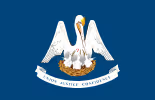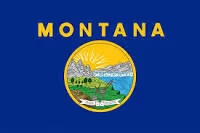Top-Rated Debt Collection Agency in South Carolina
Efficient and Trustworthy Debt Collection in South Carolina - No Initial Fees, Pay Only When We Succeed. Submit for a FREE Consultation or Upload Your Claim Today.

Maximize Your Debt Recovery in South Carolina with Debitura's Tailored Collection Services
Maximize your debt recovery in South Carolina with Debitura's tailored collection services. As an expert Debt Collection Agency in South Carolina, we offer diverse services from accounts receivables management to enforcement court proceedings. Our seasoned team is proficient in South Carolina's debt collection laws, ensuring effective strategies to recover your outstanding debts. With Debitura, your business can focus on what it does best, leaving the debt collection matter in our accomplished hands. Get back what's yours without the hassle – that's the Debitura promise.

Efficient, comprehensive debt recovery solutions in South Carolina.

Data-driven, personalized debt recovery in South Carolina.

Leveraging 500+ international experts for efficient debt collection.

Achieving 87% debt recovery success in South Carolina.
Key facts
- Debt Collection Laws: Debt collection in South Carolina is regulated by state and federal laws.
- Statute of Limitations: The statute of limitations for various debts varies, with a general limit of three years.
- Interest Rates: The legal maximum for credit debt in South Carolina is 8.75%.
- Late Payment Fees: There is no maximum late fee for overdue invoices in South Carolina.
- Wage Garnishment: Wage garnishment is forbidden in consumer credit actions in South Carolina.
- Property Exemptions: South Carolina provides property exemptions to protect debtors, including home, vehicle, and personal items.
- Licensing Requirements: Currently, no licensing or bonding requirements for debt collectors exist, unless they have an office in the state.
- Regulation of Debt Collection Practices: Debt collection practices are regulated by the South Carolina Unfair Trade Practices Act and the South Carolina Consumer Protection Code.
- Filing Fees: Filing fees for debt collection lawsuits in South Carolina are $150.
- Small Claims Limit: The small claims limit in South Carolina is $7,500.
This guide is not legal advice and laws/rules may change; consult a qualified professional for personalized assistance. Use at your own risk.
Introduction to Debt Collection In South Carolina
One of the key elements in financial management is the recovery of debts. Debt collection is the process through which creditors seek payment from individuals or businesses that are legally bound to pay or to return the creditor's money. It is essential for ensuring the smooth flow of commerce by maintaining the health of the credit market and protecting businesses from insolvent customers. This aspect of business is governed by specific state laws, ensuring the process upholds the rights of both parties involved: the debtor and the creditor. In the context of South Carolina, understanding debt collection can support business operations and safeguard individual rights.
The debt collection process involves three main roles: the debtor, creditor, and the collection agency. Firstly, a debtor is an individual, company, or institution that owes money. This could occur due to a loan, a credit purchase, or a service rendered for which the payment is due. Secondly, the creditor, on the other hand, is the entity that had originally offered the loan or service, or any financial institution that holds the right to receive the owed money. Lastly, a collection agency is a third-party organization employed by the creditor to obtain the payment owed by the debtor.
A critical aspect of debt recovery is understanding the stages of collection. These are broadly split into pre-legal, legal, and enforcement stages. During the pre-legal stage, the collection agency typically sends written reminders, and if that fails, they initiate telephone calls and personal visits to the debtors. If the debtor still fails to pay after the pre-legal efforts, the process moves into the legal stage. Here, legal action may be taken against the debtor, often in the form of a lawsuit. Once a court order is obtained, the final stage of enforcement begins. During this stage, property seizure, wage garnishment, or other methods of enforced payment may be possible, as directed by the court.
Exploring and understanding the debt collection process in South Carolina provides clarity on the rights and obligations of debtors and creditors. It also helps to understand other aspects of debt collection such as laws, limitation period, interest rates on late payments, late payment fees, and procedures for small claims and wage garnishment. Grasping these details on the debt collection process serves as an essential tool for business professionals, guiding them through effective financial management practices and ensuring lawful debt recovery.
Debt Collection Laws In South Carolina
Debt collection in South Carolina primarily falls under the jurisdiction of state laws, though federal laws, such as the Fair Debt Collection Practices Act (FDCPA), are applicable. The Fair Debt Collection Practices Act plays a major role in guiding the behavior of collection agencies throughout the process. Understanding the specifics of these laws, and the regulatory bodies overseeing debt collection, such as the Consumer Financial Protection Bureau (CFPB) and the Federal Trade Commission (FTC), is crucial for both debtor and creditor.
Federal regulations such as the Fair Debt Collection Practices Act (FDCPA) and The Fair Credit Reporting Act (FCRA) are designed to prevent abusive, unfair, and deceptive practices in the collection of consumer debts. These laws protect consumers from harassment tactics, inaccurate credit reporting, and misleading communication from debt collectors.
In addition to these federal laws, the Telephone Consumer Protection Act governs how collection agencies can communicate with debtors. It places restrictions on the use of automated telephone equipment, including automatic dialing systems, artificial or prerecorded voice messages, SMS text messages, and fax machines. It also stipulates that consumers have a right to 'opt-out' of receiving future robocalls.
State-Specific Laws and Regulations
In South Carolina, debt collection is subject to several state-specific regulations and statutes. The statutes of limitations for different types of debts vary notably; for actions other than the recovery of real property, the statute of limitations is three years. This period can be extended an additional three years if the debtor makes a partial payment or a written promise to pay. For contracts secured by a mortgage on real property, the suit for collection is enforceable within twenty years if there is no maturity date stated on the contract.
There are also specific civil remedies for fraudulent actions, such as issuing fraudulent checks which can make a person liable for the lesser of $500 or three times the amount owing on the face of the check. Wage garnishment is strictly forbidden in South Carolina, providing further protection for consumers. The state also has property exemptions to protect debtors. These exemptions vary from $50,000 for a home, $5,000 for one motor vehicle, $4,000 for household furnishings and goods, $1,000 for jewelry, to $5,000 for liquid assets.
While there are currently no licensing or bonding requirements for debt collectors in South Carolina, legislation is pending that may impose licensing requirements and continuing professional education for debt collectors.
Local Regulatory Bodies
Debt collection practices in South Carolina are regulated by the South Carolina Unfair Trade Practices Act (UTPA) and the South Carolina Consumer Protection Code (SCCPC). These regulations protect consumers from unfair and deceptive practices, including those used by debt collectors. Violations can result in treble damages. The SCCPC includes provisions such as notice of assignment, limitations on attorney's fees, and prohibitions on certain debt collection practices, thereby providing an extra layer of consumer protection.
The enforcement of these state laws rests with the state Attorney General's office, which is tasked with enforcing the UTPA and SCCPC. There have been no actions against debt collectors in South Carolina by the State Attorney General's office to date.
South Carolina has also established legal principles related to debt collection through case law. For instance, failure to send a notice of right to cure before repossession may result in an action for conversion. Businesses whose primary purpose is the enforcement of security interests are also subject to the FDCPA. Non-attorneys may not appear in court to enforce a debt that is not their own, thereby protecting the rights and interests of the debtor.
In conclusion, while debt collection in South Carolina is regulated by both federal and state laws, the state laws provide further protections for the debtor from unethical and unscrupulous collection practices. The statutes of limitations, prescribed process, and exceptions seek to ensure an equitable and fair process of debt collection.
Risk Free Debt Collection
Upload your claim and get started with our 100% no-cure-no-pay collection solution.
The Debt Collection Process In South Carolina
In South Carolina, the debt collection process is a carefully regulated procedure that unfolds over several distinct steps. From the evaluation of the case to legal action, debt collection must adhere to both state and federal laws to uphold the rights of all parties involved. Understanding these steps is crucial for both creditors and debtors.
It's also essential to note that specific facets, such as interest rates, late payment fees, and property exemptions, influence the debt collection process in this state.
Now, let's delve into the main stages of the debt collection process in South Carolina.
Evaluating The Case
Initially, the debt collection process starts with case evaluation. Debt collectors must assess the viability of the case by confirming the debt's validity and checking if it falls within South Carolina’s statute of limitations. In general, the statute of limitations for debts in this state is three years. Therefore, any debt older than that may not be collectible legally.
If the debt is valid and within the statute of limitations, the process proceeds to the next stage. Otherwise, the debt collector must halt their efforts in compliance with the law.
Pre-Legal / Amicable Phase
This stage involves reaching out to the debtor via multiple channels. The goal here is to find an amicable solution without resorting to legal procedures. Communication can be through letters, phone calls, or emails, always respecting the debtor's rights under the South Carolina Unfair Trade Practices Act and Consumer Protection Code.
If the debtor is responsive and payment arrangements can be agreed upon, legal action may be averted. However, if there is no cooperation, the case advances to the next phase.
Evaluation of Case and Legal Considerations
At this point, the debt collector evaluates the case for potential legal actions. They assess whether the debt is suitable for the small claims procedure, given the limit in South Carolina is $7,500. If the case does qualify, it can be a faster and less expensive alternative to a traditional lawsuit.
However, the filing fees for a debt collection lawsuit in South Carolina are $150, which also needs to be considered. If the case doesn’t qualify for small claims or if the amicable phase is unsuccessful, the legal debt collection process begins.
Legal Debt Collection
During the legal debt collection phase, a lawyer takes necessary steps to retrieve the debt. These steps may involve filing a lawsuit and going to court. Again, it's important to remember that South Carolina law regulates how debt collectors can conduct themselves during this phase to ensure the debtor is treated fairly.
If the court finds in favor of the debt collector and a judgment is issued, the debt enforcement phase commences.
Debt Enforcement Post Judgment
With a judgment in hand, the debt collector can proceed with debt enforcement measures. However, South Carolina law places limits on these, particularly regarding wage garnishment. Wage garnishment is generally forbidden in consumer credit actions in this state, limiting the debt enforcement methods available.
In contrast, South Carolina law does provide property exemptions to protect debtors, including home, vehicle, and certain personal items. This means, depending on the debtor's circumstances, some properties may not be seized for debt repayment.
Statute of Limitation in South Carolina
Understanding the statutes of limitation is instrumental when dealing with debt collection, particularly in the state of South Carolina. Essentially, the statute of limitation sets the maximum period which legal proceedings can be initiated after an event. When this time period elapses, the claim is no longer enforceable by legal action. This plays a considerable role in debt collection as after the statute of limitations expires, a debtor is no longer legally responsible for the debt in question.
In terms of its application to the debt collection process, the statute of limitation serves to protect persons from claims made after significant periods, where it might be difficult to make a rightful defense. It is a legal principle holding that a legal action cannot be brought after a specified period from the time the cause of action arose. This is crucial for businesses in South Carolina as understanding these limitations provides a framework for the timeline of legal actions related to debt collection.
These legislations vary from state to state, focusing on different categories of debt. Therefore, it is significant as businesses professionals to be conversant with the legal stature in their jurisdiction.
South Carolina Debt Limitation Periods
In South Carolina, the statute of limitations is regulated in the S.C. Code Ann. § 15-3-510 et seq. The limitation period for written contracts and oral contracts is three years. This means that if a debtor defaults on a written or oral debt agreement, the creditor has three years from the date of default to file a claim against the debtor.
Similarly, the statute of limitations in South Carolina for injury cases and property damage cases is also three years. For instance, if a person was injured in a car accident or if an individual's property was damaged, the injured party or the property owner has three years to file a lawsuit for compensation.
It is essential to understand that the clock starts ticking once the cause of action arises. In debt collection, this is usually when the debtor has failed to meet the agreed-upon terms. For businesses, this understanding is critical when trying to recover a debt, as initiating legal action post this period could result in losing the right to collecting the debt altogether.
By aligning with the statutes of limitation in South Carolina, you ensure that your actions conform with the legal landscape and optimize your chances of successful debt recovery. It is beneficial advice to always strive to initiate any debt recovery action promptly, essentially as soon as a liability is identified.
Interest Rates on Late Payments in South Carolina
Whether it’s for everyday expenses, a significant purchase, or an unexpected financial emergency, credit cards often become a go-to solution for many individuals. It’s crucial, however, to understand that these convenient payment methods can lead to high-interest debt if not managed responsibly.
Interest rates on late payments are essentially the cost of borrowing money, and they can accumulate quickly on overdue balances. As such, understanding the nuances surrounding interest rates is integral to managing debt and avoiding collection actions. This understanding becomes even more crucial when dealing with intricacies of individual state laws, such as those governing debt collection in South Carolina.
South Carolina has in place certain consumer protection laws that limit interest rates on credit cards, judgments, and loans. These laws aim to protect consumers from excessively high interest rates that could further worsen their financial situation.
South Carolina's Interest Rates Laws
In South Carolina, state laws cap the amount of interest creditors can charge for late payments. The legal maximum for revolving credit debt, such as those on credit cards, is currently set at 8.75% as per section 34-31-20 of the South Carolina Code of Laws. This limit offers a level of protection to consumers, ensuring that they are not subjected to unreasonably high interest charges on late payments.
However, the interest rate for money decrees and court judgments is determined differently. The applicable rate is “equal to the prime rate as listed in the first edition of the Wall Street Journal published for each calendar year for which the damages are awarded, plus four percentage points, compounded annually.” This sum amounts to a potential 12% interest rate on judgments, as detailed in the same section of the South Carolina Code of Laws.
Nevertheless, it's worth noting that the usury penalty laws that provide punishment for unlawful interest rates were repealed in June 1982 in South Carolina. However, it's possible that the old law might still apply to transactions undertaken before that period.
Exceptions and Consumer Protection
There are some exceptions, though, to the South Carolina's interest rate laws which are written into the South Carolina Consumer Protection Code. These exceptions serve to further safeguard consumers’ rights and interests.
Ultimately, the best strategy to prevent high interest-related financial complications is to use credit responsibly and aim to pay off balances as soon as possible, preferably within each billing cycle. For individuals who find themselves consumed by significant credit debt, there exist federal consumer protections that might offer some assistance.
Understanding these laws related to interest rates on late payments in South Carolina can aid in more effectively managing debt, avoiding the problems associated with excessive interest costs, and navigating through the process should a debt collection action occur.
Late Payment Fees in South Carolina
Understanding the concept and implications of late payment fees is fundamental towards a comprehensive grasp of the debt collection process. Late payment fees are additional charges imposed on an outstanding debt balance that a debtor failed to service within the stipulated time frame. The significance of late payment fees arises from their potential to accelerate the growth of the debt, making it increasingly difficult for the debtor to clear it.
Moreover, these fees can significantly impact a debtor's credit score as well as have legal repercussions. Therefore, knowledge of the regulations governing late payment fees can ensure better financial planning and strategy for businesses as well as individuals.
Regulations on Late Payment Fees in South Carolina
In South Carolina, the laws pertaining to late payment fees are rather lenient towards the creditors. The state legislation stipulates no maximum cap on the late fee that a business can charge for overdue invoices. This implies that businesses enjoy the flexibility to impose a late payment fee as they deem fit, allowing them to potentially recover more from aged receivables.
Besides, South Carolina law does not mandate businesses to provide any grace period before applying late fees on outstanding balances. While it's common practice for some businesses to permit a grace period of up to seven days, it isn't a legal requirement. This practice tends to vary from business to business and is usually determined by internal business policies rather than state law.
The absence of these restrictions provides businesses the option to implement penalties for late payments promptly, thus encouraging customers to settle invoices on time. However, it's vital for businesses operating in the state to clearly communicate their policies on late payment fees to their customers to avoid any potential misunderstandings or disputes.
Always remember, while South Carolina’s laws may seem lenient, it doesn't mean that businesses should impose harsh or unreasonable late fees. Such actions might not only damage the business's reputation but could also lead to disputes and litigation. It is always recommended to be reasonable and empathetic in business operations, thus ensuring continued healthy relationships with clients.
Small Claims Procedures in South Carolina
Small claims court is a legal avenue often used to recover debt. It offers a simplified process for settling disputes involving amounts within the threshold established by the state. In South Carolina, the small claims court operates under the Magistrates Court.
The procedures for small claims court in South Carolina are dictated by the S.C. Code Ann. sections 22-3-10 to 22-3-320; 15-7-30; 18-7-10 to 18-7-30 and the South Carolina Rules of Magistrates Court, Rules 1 to 24. It provides a civil forum to litigate disputes up to a monetary limit of $7,500. More substantial lawsuits are transferred to the circuit court of the county.
The suit should be filed in the county where at least one defendant resides or where the most substantial part of the cause of the action arose. Against a domestic company, the county where it has the principal place of business is considered appropriate for the case.
Process and Response
The process of filing a claim involves serving the defendant with a written notice of the lawsuit. This can be accomplished either by the sheriff, a sheriff's deputy, a magistrate's constable, or another disinterested adult; commercial delivery service; personal service or certified mail, return receipt requested and delivery restricted to the addressee.
The defendant, upon receiving the notice, can respond either orally or in writing. They may also file counterclaims within 30 days or the time period stated in the summons.
If a counterclaim exceeding the limit of $7,500 isn’t waived, the case will be transferred to the circuit court of the county.
Representation and Appeals
In South Carolina's small claims court, lawyers are allowed to represent parties. However, due to the lower monetary stakes and simplified procedures, parties often represent themselves to save on attorney fees.
If a party isn't satisfied with the judgment, they can file an appeal. This should be done within 30 days after the delivery of the written notice of judgment to the party or the attorney.
Small claims court in South Carolina, which deals with monetary disputes up to $7,500, plays an essential role in the debt collection process. Understanding the small claims procedures can help businesses in particular to effectively recover outstanding debts.
Wage Garnishment in South Carolina
Wage Garnishment forms an essential part of the debt collection process. It's a legal procedure where a portion of an individual's earnings are withheld by an employer for the payment of a debt as per the court's order or other equitable procedure. It's a powerful tool that creditors can utilize to recoup their debts.
Understandably, wage garnishments can have a substantial impact on the debtor's financial health, living standards, and overall livelihood. That's why each state has its own rules governing the practice to strike a balance between debtor protection and creditors' rights, the state of South Carolina being no exception.
Understanding these regulations is vital for businesses and individuals alike. Therefore, gain familiarity with these laws can help businesses in effective, lawful, debt recovery and individuals can protect their rights from potential misuse of the wage garnishment procedure.
South Carolina Wage Garnishment Rules
South Carolina stands as one of a few states that extends significant protections to debtors when it comes to wage garnishments. Wage garnishment as a method of debt collection is generally prohibited in South Carolina, except in specific circumstances such as for child support, student loans, federal taxes, and other non-dischargeable debts. Essentially, private creditors cannot garnish your wages in South Carolina.
However, for permissible wage garnishments, South Carolina follows federal wage garnishment limits. According to these, the maximum sum that can legally be withheld from a debtor’s disposable earnings is the lesser of 25% of the debtor's weekly disposable earnings or the amount by which the debtor’s disposable earnings exceed thirty times the federal minimum wage.
These protections are aimed at ensuring that wage garnishment does not leave the debtor with insufficient means to cover essential living expenses. This shows South Carolina's commitment to protecting its citizens from severe financial distress while still honoring lawful debt obligations.
Understanding Wage Garnishment as a Creditor
If you're a business seeking to recoup certain debts, it's important to understand that pursuing wage garnishment in South Carolina needs adherence to both state and federal laws. Neglecting these conditions could expose your business to legal repercussions. Thus, getting professional advice is a prudent course of action when maneuvering these tasks.
Given that wage garnishment largely isn't possible in South Carolina, businesses have to explore other legal avenues for debt collection. These may involve seizing assets, lien placements, and others. Remember, effective debt collection is not just about knowing your rights as a creditor, but also respecting the rights and protections of the debtor.
In conclusion, while wage garnishment can be a powerful tool to reclaim debts, its use in South Carolina is quite limited and heavily regulated. Understanding this can assist individuals in understanding their rights and businesses in planning a suitable approach towards debt recovery.
.webp)
.png)
.avif)
.avif)
.avif)
.avif)
.avif)
.avif)
.avif)

.avif)

.avif)






.svg.avif)




.avif)
.avif)

.avif)
.avif)



.avif)



.svg.avif)

.avif)

.avif)
.avif)
.avif)
.avif)
.avif)
.avif)
.avif)
.avif)
.avif)
.avif)
.avif)
.svg%20(1).avif)
.svg)

